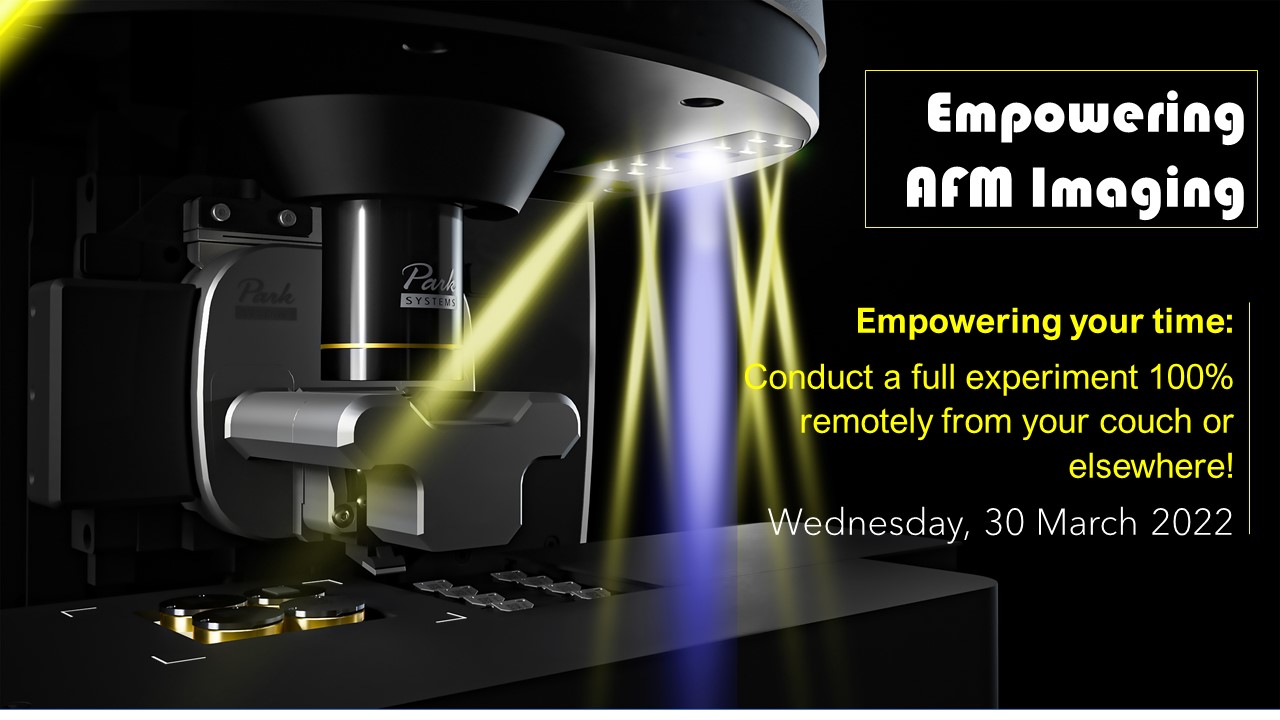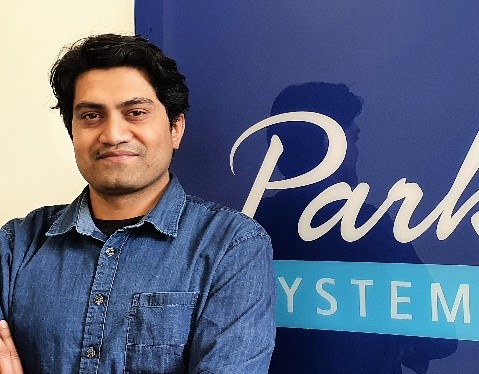
Empowering your time: Conduct a full experiment remotely from your couch or elsewhere!
Wednesday, 30 March 2022
- 10:00 am – 11:00 am
(GMT)
London, Dublin - 11:00 am – 12:00 pm
(CET)
Berlin, Paris, Rome - 19:00 pm – 20:00 pm
(UTC+9)
Seoul, Tokyo

Check out all webinars from the Empowering AFM Imaging series here.
Atomic force microscopy is a powerful analytical technique for characterizing materials as it provides profound insight into the innate material properties. The lately introduced Park FX40 Automatic AFM has now made it possible for anyone to perform those measurements with ease. Through its unique automation and machine learning, Park FX40 can change samples and probes with just one click. This makes the tool suitable for remote handling from anywhere in the world through internet.
In this webinar series, we have shown the various automation features of Park FX40 Automatic AFM coupled with the advanced AFM modes. In the final demonstration of this series, we will be conducting an experiment with multiple samples and probes completely remotely from Germany on the FX40 tool based in Park Systems office in United Kingdom. This session will ascertain the 100% remote capabilities of the FX40 instruments. We will show you how to plan your experiments and research more efficiently, which gives you the freedom and flexibility of working from anywhere in the world and have high quality quantitative data.

Presenter:
Abdul Rauf, Application Scientist at Park Systems Europe
Abdul is an Application Scientist at Park Systems Europe, where he supports development of AFM solutions for customers. He had his training as a polymer materials’ engineer with emphasis on elastomer blends and composites. Abdul has expertise in characterization of macromolecular systems at interfaces. He worked on his doctoral thesis in the group of Prof. Jürgen P. Rabe in Humboldt-Universität zu Berlin, where he acquired expertise in morphological and nanomechanical characterization of thin films confined in interfaces. His work in Berlin also included study of two-dimensional materials such as monolayers of Graphene, Hexagonal Boron Nitride, and Transition Metal Dichalcogenides as sensors for strain transfer across atomic interfaces.




